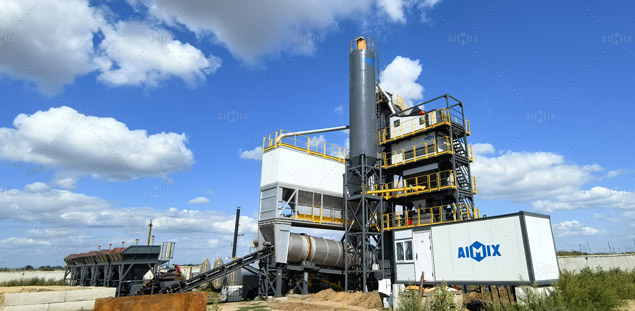In Latin America’s rapidly evolving infrastructure market, contractors and construction firms are not only looking for performance and affordability—they’re also placing increasing value on safety across the entire life cycle of their equipment. Asphalt plants, in particular, are long-term investments that operate under demanding conditions. From procurement to maintenance and eventual resale, evaluating the safety cost is becoming a strategic decision for buyers in the region.
Whether purchasing a mini asphalt plant, a full-scale stationary unit, or a mobile asphalt plant for remote projects, Latin American buyers are beginning to ask a critical question: how does safety impact my cost and return on investment throughout the plant’s life span?
Why Safety Is a Long-Term Consideration in Latin America
For many Latin American customers, construction projects are often carried out in challenging environments—mountainous regions, coastal zones, rural roads, or politically sensitive areas. In such conditions, the safety of equipment is directly linked to operational continuity, employee protection, and legal compliance.
While an asphalt plant for sale(planta de asfalto en venta) with lower upfront cost may seem attractive, experienced buyers recognize that lower safety standards can lead to much higher expenses over time. These may include equipment damage, project delays, regulatory fines, worker injuries, or expensive emergency repairs. As a result, safety is no longer seen as an optional feature—it is viewed as a necessary part of risk management and cost control.
Stage One: Evaluating Safety During the Purchase Process
The first touchpoint where safety cost is considered is during procurement. Latin American buyers today are far more informed and deliberate. They often compare various manufacturers not only by capacity and mobility but also by safety configuration.
Key features considered at this stage include:
- Emergency stop systems
- Temperature and pressure sensors
- Interlock mechanisms
- Dust and fume control systems
- Fire suppression and explosion-proof designs
Buyers understand that a well-equipped mini asphalt plant(mini plantas de asfalto) may have a slightly higher purchase price, but it also reduces the likelihood of expensive failures in the field. This is especially important for contractors working in areas with limited technical support or slow logistics.
Stage Two: Operational Safety and Its Hidden Value
Once an asphalt plant is in use, safety systems play a major role in minimizing downtime and maintaining production efficiency. A mobile asphalt plant, for instance, may be deployed in remote or temporary locations, where even minor safety incidents can result in serious consequences due to the lack of nearby service teams or spare parts.
Operational safety contributes to:
- Fewer unexpected shutdowns
- Better protection of wear parts
- Lower fuel and material waste
- Stable mix quality
- Improved operator confidence and reduced training time
These benefits directly reduce running costs over the plant’s operational years. In addition, plants with robust safety systems often require less manual intervention, which means fewer labor hours and less risk of human error.
Stage Three: Maintenance and Long-Term Cost Reduction
Regular maintenance is essential for any asphalt plant, but safety-focused equipment tends to reduce the frequency and severity of maintenance events. Smart monitoring systems can alert operators to potential problems before they lead to breakdowns. Features such as wear detection, temperature control, and real-time diagnostics simplify maintenance routines and help extend the plant’s life cycle.
In Latin American countries where maintenance logistics may be slow or expensive—such as in Amazonian regions, Andean plateaus, or rural parts of Central America—this preventive capability translates into significant cost savings.
Furthermore, maintenance of safer equipment tends to be easier and more predictable, which supports long-term planning and budgeting.
Stage Four: Resale and Equipment Reputation
Another reason Latin American customers pay attention to safety costs is the resale market. Asphalt plants with a strong safety profile often retain higher resale value. Prospective second-hand buyers tend to favor machines that have well-documented safety performance, intact protective systems, and a history of reliable operation.
A mobile asphalt plant(planta de asfalto movil) or mini asphalt plant with built-in safety systems is especially attractive on the resale market due to their flexibility and readiness for quick deployment.
In some cases, local governments or public-private partnerships in Latin America also have strict procurement rules that favor second-hand equipment with verifiable safety features. This makes it easier for sellers to recover more of their initial investment.
Conclusion: Safety as a Strategic Asset Across the Life Cycle
For Latin American customers, evaluating the safety cost of asphalt plants is no longer limited to the point of purchase. It is now integrated into every stage of the plant’s life cycle—from procurement and daily operation to maintenance and eventual resale.
While a safer plant may carry a slightly higher price tag initially, it delivers far more value in terms of uptime, efficiency, compliance, and brand reputation. For contractors and developers focused on long-term profitability and operational success, choosing an asphalt plant for sale with a high safety configuration is a decision that pays off many times over.


Comments
No comments yet. Be the first to react!